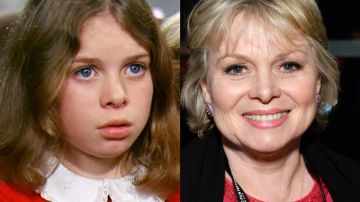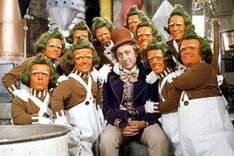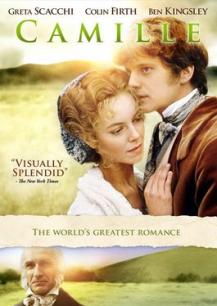 Prolific author Sean McCollum is here today to talk about his newest book, 1 For All. Sean has been in the educational and youth publishing business for nearly 30 years and is the author of more than 50 commercially published books and more than 300 articles for kids and teens. He is also an avid traveler and has journeyed to 65 countries so far! In 1 For All, he travels closer to home inside the world of 8th grade competitive basketball.
Prolific author Sean McCollum is here today to talk about his newest book, 1 For All. Sean has been in the educational and youth publishing business for nearly 30 years and is the author of more than 50 commercially published books and more than 300 articles for kids and teens. He is also an avid traveler and has journeyed to 65 countries so far! In 1 For All, he travels closer to home inside the world of 8th grade competitive basketball.
In 1 For All, J.J. Pickett, captain of the Traverse Middle School Musketeers, thinks this is the year he will lead his eighth-grade team to the conference title. But bad breaks, a new coach, and a long-standing grudge sabotage his hopes and leave him struggling on and off the court. Can J.J. and his teammates salvage a lost season?
Don’t miss your chance to win a copy of Sean’s new book! And as if that wasn’t enough of a goodie, Sean is also giving away two more of his books that are great companions to 1 For All. This includes, Pro Basketball’s All-Time Greatest Comebacks and Basketball’s Best and Worst: A Guide to the Game’s Good, Bad, and Ugly.
Check out the Rafflecopter contest below to enter this 3-book bundle!
Q&A with Sean:
- How did the idea for 1 For All come to you and would you say you are a basketball fan … and if so what team(s) do you root for?
Hi Donna!
This story has long-ago roots from my own days as a back-up guard for the Oconomowoc Junior High School Bulldogs in Wisconsin. I’ve been a Milwaukee Bucks and Marquette Warriors/Golden Eagles fan as long as I can remember … which happily includes the Bucks one and only NBA championship so far.
 But at the heart of the story was a question I’ve had for a while: Why do people keep playing and competing when they’re no longer the best or are out of running for a championship or gold medal or whatever? I wanted to follow J.J. Pickett and his teammates as they try to figure out an answer for themselves.
But at the heart of the story was a question I’ve had for a while: Why do people keep playing and competing when they’re no longer the best or are out of running for a championship or gold medal or whatever? I wanted to follow J.J. Pickett and his teammates as they try to figure out an answer for themselves.
- Team spirit, a love of the game, and self-restraint are integral to your story. How did you balance all of these within the 8th grade age and landscape of your characters?
Great question. Those themes really grew out of J.J.’s journey and his friendship and affection for his teammates. In my mind, to be a good teammate or partner of any kind requires the element of self-regulation to balance out one’s ego and passions. Middle school is where that struggle is joined for so many of us, though as I’ve learned the learning curve lasts a lifetime.
- Midwest Book Review notes in a glowing review that 1 for All “captures the strategies, challenges, and dilemmas of players, managers, and those involved in building basketball dreams”. With such deep layering of the game throughout the story, did it require a lot of basketball research?
I spent so much time watching and playing hoops and other sports growing up that the ebb and flow of a game is second nature. However, I did have to update my knowledge of what 13-year-old basketball players can do. Today’s young players bring a skill level and court awareness that makes my jaw drop.
- What was your process for writing this book and did it differ from other books you’ve written?
Nonfiction has been my career, so creating a work of fiction was both a challenge and an opportunity to let my imagination take the wheel. As a rule, nonfiction has a certain formula that I know in my bones at this point. Writing a middle grade novel required me to bring learner’s mind to the writing and revising process. My friends at Brattle Publishing, Rich Lena and Carol Karton, were fantastic at pointing out the weak points in the manuscript and encouraging me not to tweak but to re-vision them. My best friend and fellow writer Tod Olson was instrumental, too, in pushing me to connect the on-court and off-court plot points. At a certain point, every book becomes a collaborative process, but I leaned heavy on the framework of a three-act structure to build a strong story arc.
 Do you envision writing more athletic-related stories in the near future and if so, what other sports might you dive into?
Do you envision writing more athletic-related stories in the near future and if so, what other sports might you dive into?
Funny you should ask! I’m in the process of revising a group of four short sports stories—one for the sports of basketball, baseball, and football, and one about skating (skateboards). I want to call it something like 4 Sports Shorts, and I originally conceived it as a series for reluctant readers. People keep telling me there’s no market for MG short stories, but oh well, that’s how these came out. I find that a story tells me what it wants to be.
- You’ve lived all over the world in some amazing places! What places have you written about in your books and what other locations do you see yourself writing about in the future?
I’ve written magazine articles for Boys’ Life, Junior Scholastic, and others based on travels in West Africa (Mali and Niger), Papua New Guinea, and parts of Alaska. But for some reason I’ve never put much energy into turning those personal adventures into stories. I guess I’ve never thought of my experiences as that interesting! Or maybe I just like to keep those adventures, many of them quite embarrassing, to myself.
- What project is on your writing plate at the moment that you’d like to share with us?
 A picture book of mine, We CAN’T Go Outside!, recently won the Katherine Paterson prize for PBs from Hunger Mountain, the journal of Vermont College of Fine Arts (https://hungermtn.org/we-cant-go-outside-sean-mccollum/). So, I’m looking for an agent or publisher for that. I’m also revising a chapter book adventure called Daisy & May about a plucky prairie dog and a girl who tries to help her save her prairie dog town. Oh, and on deck is a YA novel called Lucky Boots about a disillusioned high school senior who attempts to hike the 2,600 miles of the Pacific Crest Trail, which I did in 2012. (I still can’t feel my toes.) I’ve got more ideas in my notebooks than I’ll ever be able to write, but I love it when a new character or plot shows up in my imagination.
A picture book of mine, We CAN’T Go Outside!, recently won the Katherine Paterson prize for PBs from Hunger Mountain, the journal of Vermont College of Fine Arts (https://hungermtn.org/we-cant-go-outside-sean-mccollum/). So, I’m looking for an agent or publisher for that. I’m also revising a chapter book adventure called Daisy & May about a plucky prairie dog and a girl who tries to help her save her prairie dog town. Oh, and on deck is a YA novel called Lucky Boots about a disillusioned high school senior who attempts to hike the 2,600 miles of the Pacific Crest Trail, which I did in 2012. (I still can’t feel my toes.) I’ve got more ideas in my notebooks than I’ll ever be able to write, but I love it when a new character or plot shows up in my imagination.
- Let us know how we can connect with you!
(post social media/website links here)
People can follow me on Twitter @seandmccollum and seandmccollum on Instagram. My seedy little website is www.kidfreelance.com … I really must get around to upgrading that. :-/ Goodreads is a good place to see a listing of my nonfiction titles. (https://www.goodreads.com/author/show/27640.Sean_McCollum)
Thank you, Donna, for giving me a chance to share!



 For today’s Author Spotlight, I’m pleased to interview Joy Jones, author of the debut middle-grade novel,
For today’s Author Spotlight, I’m pleased to interview Joy Jones, author of the debut middle-grade novel,  Interview with Joy Jones
Interview with Joy Jones

 Team Spirit
Team Spirit








 Julie Dawn Cole
Julie Dawn Cole
 Julie as Veruca Salt and now
Julie as Veruca Salt and now The band, Veruca Salt
The band, Veruca Salt Paris Themmen as Mike TeeVee
Paris Themmen as Mike TeeVee Julie with Roy Kinnear and Pat Coombs
Julie with Roy Kinnear and Pat Coombs Gene Wilder as Willy Wonka
Gene Wilder as Willy Wonka Denise Nickerson
Denise Nickerson Peter Ostrum
Peter Ostrum Oompa Loompas
Oompa Loompas Willy Wonka’s Chocolate Room
Willy Wonka’s Chocolate Room Camille (1984 film)
Camille (1984 film) Pookie by Ivy Wallace
Pookie by Ivy Wallace In Search of the Castaways
In Search of the Castaways